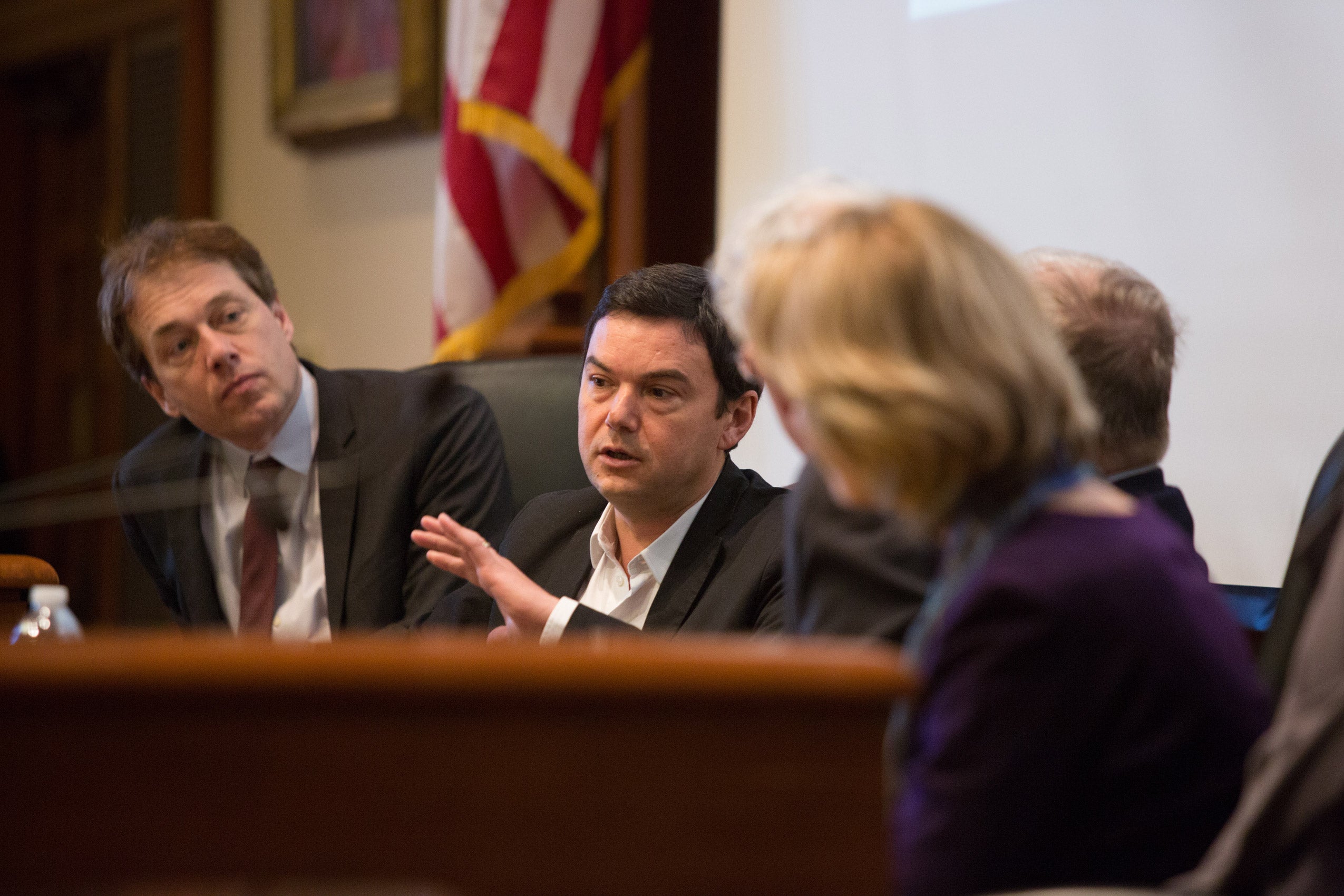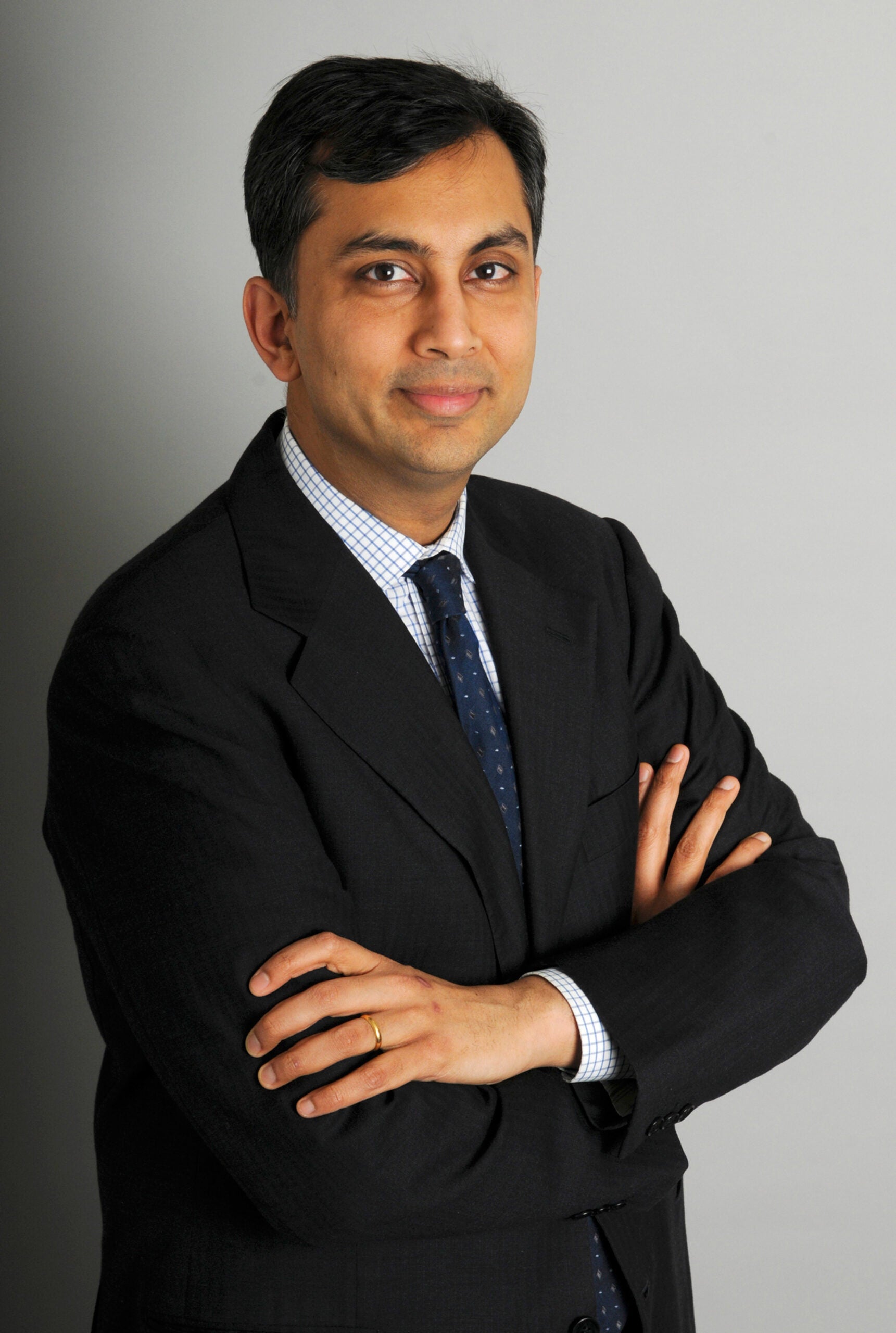People
Mihir Desai
-
Faculty Books in Brief—Spring 2017
May 18, 2017
The concept of speech is typically defined as the communication of thoughts in spoken words. Yet the authors note that First Amendment protection of speech is far broader, covering nonrepresentational art, instrumental music, and even nonsense—individual topics that Tushnet, Chen, and Blocher focus on (in that order) in the book.
-
A win-win path to getting the Trump tax information that really matters
February 23, 2017
An op-ed by Mihir Desai and Edward Kleinbard. President Trump’s spokespeople have made it perfectly obvious that he will not release his federal income tax returns during his presidency. Appeals to the tradition of presidents publishing their returns will not change this president’s resolve. Nor is a more forceful approach likely to pry the returns into public view.
-
So, What Is a Border Adjustment?
January 30, 2017
On Thursday, White House press secretary Sean Spicer said something sufficiently confusing that for a minute, people believed that the Trump administration intended to raise funds for a border wall by imposing a 20 percent tariff on all imports from countries with which the U.S. runs a trade deficit— including Mexico. It soon became clear that Spicer was not talking about a tariff per se, but something more like the House GOP’s border adjustment tax..."A border tax adjustment is not really a tariff, and it's not typically country specific or good specific. A border tax adjustment is part of a larger tax system where they're trying to tax consumption, and the adjustments are ways to make sure that the tax base is in fact domestic consumption," says Mihir Desai, an expert in tax policy and international finance and a professor at Harvard Business School and Harvard Law School. Desai says that one of the advantages of passing off a border adjustment as a tariff might just be political convenience, characterizing a tax overhaul (which Republicans support) as a protectionist measure. But the border adjustment might be preferable to actual tariffs, which could lead to a trade war.
-
There’s one piece of tax reform that would have a real impact with little resistance
September 23, 2016
Corporate tax reform may be the issue with the highest degree of consensus among Republicans and Democrats. But when it comes to most issues regarding personal taxes, it’s been hard for those on both sides of the aisle to agree. That said, in a recent Harvard Business School (HBS) study on competitiveness, professor Mihir Desai explained there is one key area where both sides seem to agree: a minimum tax on the highest earners. While personal tax reform “cuts a little closer to home” than corporate tax reform, according to Desai, changing the tax brackets at the highest level is something that would have a real revenue impacts without too much resistance. Desai, who is both a business and law professor at Harvard, explained that there is a distinct opportunity for a new top tax bracket, especially given the changing composition of the current brackets.
-
The Trump-Obama Corporate Tax Reform Fail
March 7, 2016
An op-ed by Mihir Desai. Removing the incentive for American companies to move their headquarters abroad is a widely recognized goal. To do so, the U.S. will need to join the rest of the G-7 countries and tax business income only once, in the country where it was earned. Notably, this principle—called territoriality—is included in the bipartisan framework for international tax reform developed by Sens. Rob Portman (R., Ohio) and Charles Schumer (D., N.Y.) in 2015. Unfortunately, recent reform proposals have a serious flaw: a “minimum tax” on foreign business income. This flaw is in President Obama’s fiscal 2017 budget, and Republican presidential front-runner, Donald Trump, has broached a similar idea on the campaign trail.
-
Harvard Gazette: The costs of inequality — Increasingly, it’s the rich and the rest
February 10, 2016
Second in a Harvard Gazette series on what Harvard scholars are doing to identify and understand inequality, in seeking solutions to one of America’s most vexing problems.
-
How crowdsourcing could help simplify America’s tax code
April 14, 2015
An op-ed by Mihir Desai. Complaining about the complexity of the tax code has become a treasured ritual during spring tax season. The code has grown ever more complex and this complexity has considerable costs. As one example, the incredible complexity of tax incentives for education limits uptake and redistributes wealth away from those targeted and toward sophisticated taxpayers. How could we transform this ritual of complaining into spring cleaning? Addressing complexity in the tax code requires analogizing to other complex systems and drawing on the research that demonstrates how to manage that complexity. Indeed, there is a well-developed literature on how to manage complex systems that can provide the foundation for simplifying the tax code. In particular, we know a lot about how to manage the evolution of software codes. This analogy yields two primary lessons.
-
Explaining ‘Capital:’ In HLS visit, economist Thomas Piketty discusses his landmark text (video)
March 18, 2015
It’s been just a year since Thomas Piketty’s “Capital in the Twenty-First Century” turned the respected French economist from the University of Paris into an academic and publishing rock star. Piketty’s status showed little sign of fading during his March 6 visit to Harvard to speak about the book before an overflow crowd inside Austin Hall at Harvard Law School.
-
Heard on the Hill: Tribe on Clean Power Plan; Shay on international tax system; and Desai and Fogg on tax complexity
March 16, 2015
On Tuesday, March 17, two professors from Harvard Law School, Laurence Tribe ’66 and Stephen Shay, will testify before Senate committees. Last week, Harvard Law School Professor Mihir Desai and Visiting Clinical Professor T. Keith Fogg testified before the U.S. Senate Committee on Finance.
-
Foreign Takeovers See U.S. Losing Tax Revenue
March 6, 2015
Just months after the Obama administration cracked down on mergers that helped U.S. companies skirt domestic taxes, a wave of foreign takeovers is steering more tax revenue away from Uncle Sam. In deals known as “tax inversions,” which spiked in 2014, U.S. companies acquired foreign rivals and redomiciled in low-tax countries, reducing the taxes paid back home. ...Taxes “aren’t the afterthought” anymore in deal making, said Mihir Desai, a Harvard business and law professor, at a recent tax conference. “They are, in fact, a leading thought in the design of these [cross-border] transactions.”
-
Friday Q & A: Harvard’s Mihir Desai, Part One
February 6, 2015
There’s growing bipartisan interest in tapping a new source of revenue to pay for highways, light rail systems, and other infrastructure: the nearly $2 trillion of U.S. corporations’ earnings now held overseas. President Barack Obama has proposed a one-time tax of 14 percent on those earning...But as infrastructure funding becomes entangled in the effort to enact corporate tax reform, the complexities will grow. There are voices of caution. One is Mihir Desai, a professor of finance at Harvard Business School and a professor of law at Harvard Law School. Here are excerpts of our conversation with Desai Thursday, starting with his comment on the need for broad corporate tax reform:
-
Tax Turnaround Time?
November 24, 2014
Proposals for reversing the corporate inversion trend bring home the need for tax reform.
-
Getting a handle on inversion
August 18, 2014
In recent years, a number of U.S.-based corporations with significant international holdings have shifted their headquarters overseas in an attempt to lower their tax bills. The process, known as corporate or tax “inversion,” is designed to avoid America’s high corporate tax burden. At 35 percent, the U.S. nominal corporate tax rate is highest among member nations in the Organization for Economic Cooperation and Development (OECD)…[Harvard Law School Professor Mihir] Desai spoke with the Gazette via email about the factors driving the practice of tax inversion, and also provided links to research around the topic.
-
Getting a handle on inversion: A Q&A with Mihir Desai
August 15, 2014
Harvard Law School Professor Mihir Desai recently spoke with the Harvard Gazette about the factors driving the practice of tax inversion, a maneuver by which U.S.-based corporations with significant international holdings shift their headquarters overseas in an attempt to lower their tax bills.
-
Senate Panel Takes On Tax Inversions
July 29, 2014
The chorus of voices on Capitol Hill calling for an end to corporate inversions grew louder on Tuesday as the Senate Finance Committee held a hearing on the issue of American companies reincorporating abroad, and legislators proposed new punitive measures against inverted companies…But while agreeing that the current system is broken, Mihir A. Desai, a professor of law at Harvard University, said punitive legislation could be counterproductive. “Legislation that is narrowly focused on preventing inversions or specific transactions runs the risk of being counterproductive,” he said. ”For example, rules that increase the required size of a foreign target to ensure the tax benefits of an inversion can deter these transactions but can also lead to more substantive transactions.”
-
When U.S. companies dodge taxes, is it unpatriotic?
July 28, 2014
The rush is on for big U.S. companies to lower their tax bills. They do it by merging with foreign companies in countries with lower rates and officially moving their home base. The strategy is called "inversion," and it's legal. But is it un-patriotic? …The trend of U.S. companies moving abroad is more a testament to, among other things, "the importance of non-U.S. markets for U.S. firms," said Mihir Desai, a Harvard professor of finance and law. "Rather than questioning the loyalties of executives it is critical to understand these underlying ... forces."
-
Desai testifies on tax inversion
July 23, 2014
On July 22, Harvard Law School Professor Mihir A. Desai, a scholar of tax policy, international finance and corporate finance, participated in a Senate Finance Committee hearing titled “The U.S. Tax Code: Love It, Leave It, or Reform It.”
-
Mihir A. Desai, who currently serves as the Mizuho Financial Group Professor of Finance, the Senior Associate Dean for Planning and University Affairs, and the Chair of Doctoral Programs at Harvard Business School, has accepted a joint appointment to the faculty of Harvard Law School as a tenured Professor of Law.





